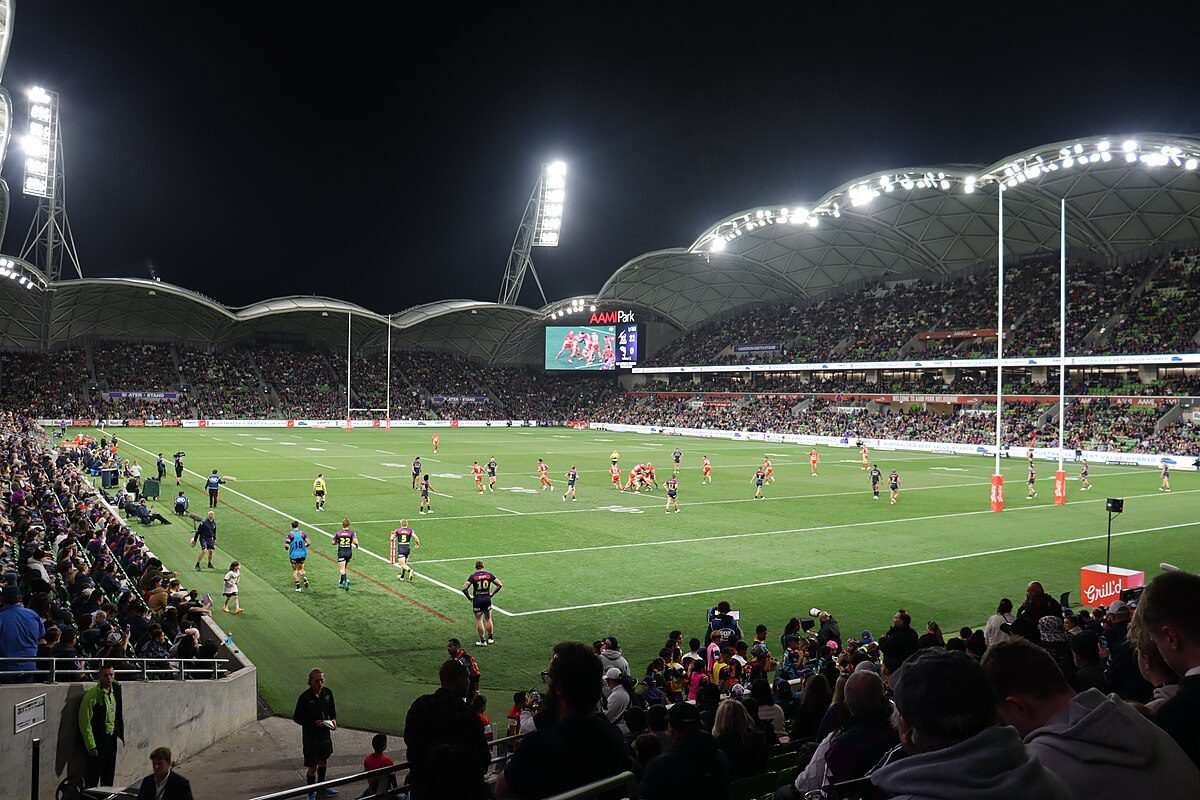How the Middle East became the sports industry’s go-to destination

Since the turn of the century the Middle East has transformed the global sporting landscape through huge regional and international investment.
Once renowned for their burgeoning oil industry, some of the region’s richest and most powerful nations – the United Arab Emirates, Qatar and Saudi Arabia – have reimagined what sport in the 21st century looks like.
From regularly hosting the world’s biggest sporting events like Formula One and golf’s European Tour, to mammoth investment overseas at the likes of Manchester City and Paris Saint-Germain, there is no doubt that the Middle East is now a global sporting superpower.
But why has the region undertaken this fairly recent splurge on sport?
With large parts of the world now taking active steps to find alternative and renewable fuel sources, oil is slowly becoming less sought after. So the region needs to diversify its economy.
Sport, with its global audience and huge revenue streams, offers just that. And while each nation is determined to be a world leader in this field, they’re also battling each other for regional supremacy. At the centre of that battle is football – the most watched, played and loved sport in the world.
The investment started in 2008 when the Abu Dhabi United Group, led by the UAE’s Deputy Prime Minister Sheikh Mansour, bought Premier League club Manchester City. Since the purchase City are estimated to have spent over $1.5bn in transfer fees, winning multiple Premier League titles, a Champions League and breaking countless English football records along the way.
The City Football Group has since been formed by the Abu Dhabi United Group, purchasing stakes in football clubs around the world, including La Liga’s Girona, New York City FC in the MLS and Melbourne City in the Australian A League.

But has Abu Dhabi’s mammoth investment in City helped shine a light on the UAE Pro League closer to home?
In May, Al Ain became the first UAE team to win the AFC Champions League for over 20 years. The Abu Dhabi-based side’s win over Yokohama F. Marinos – who are also owned by City Football Group – has been heralded as a seminal moment for UAE football.
“Yeah, I think it has [shone a light]”, says Sam White, co-founder of Dubai-based The Player, partners of Global Institute of Sport.
However, White feels more needs to be done to shout about the UAE Pro League.
He added: “City’s success does shine a light on the region and people want to gain an understanding [of the league]. But I think we can do a better job of getting our football out to an international audience. Saudi has stepped up with the way they market their league, so we need to do the same for sure.”
Abu Dhabi’s success with Manchester City was just the start though. In 2010, Qatar was awarded the men’s 2022 FIFA World Cup – the first to be staged in the Middle East. Following 12 years of controversy the competition couldn’t have gone better for the hosts, with the final pitting Lionel Messi and Kylian Mbappe against each other – both then plying their trade for Qatar-owned PSG. When Messi lifted the trophy for Argentina whilst wearing a bisht, many felt Qatar had won the battle for football supremacy in the region.
But just the following year Saudi Arabia and its Public Investment Fund went into overdrive. Not long after completing the drawn out takeover of Newcastle United, the summer 2023 transfer window saw Saudi Pro League clubs spend more than rival leagues in France, Spain, Italy and Germany, with only the Premier League recording a higher spend. The likes of Jordan Henderson, Neymar Jr., Karim Benzema and Sadio Mane all left major European clubs for the riches of Saudi.
But the biggest win for Saudi came earlier, just weeks after the Qatar World Cup concluded. The signing of Cristiano Ronaldo for Al Nassr, on a reported $400m two-and-a-half year deal, sent shockwaves through the game, and for the first time Saudi Arabia was the talk of the football world.
And with Saudi set to host the men’s 2034 FIFA World Cup, don’t be surprised to see more household names appear in the Saudi Pro League over the next decade. League bosses are determined to make the league one of the leading competitions anywhere in the world. White says: “The Saudi Pro League is affecting us {in the UAE] in a really good way because it means that there’s even more eyes globally on the game here”.
However, White went on to say that salaries being earned by the likes of Ronaldo and Neymar Jr. isn’t a reflection of the reality in the region.
“That is not the norm in the Middle East. There are some really cool sustainable projects that people can buy into and develop and grow in. Overall though, I think we can thank the Saudi Pro League for shining even more of a light on the Middle Eastern region.”
Whilst football has been a huge focus for investment, other major sports have experienced a big shift in their operation due to Middle Eastern investment.
Dubai could once claim to be the region’s biggest golfing attraction. DP World has been the lead sponsor for the European Tour now for a number of years, with the tour now culminating with the Race to Dubai event and the DP World Tour Championships. Rory McIlroy is the current champion, winning the season-long competition for a fifth time last time out.
However, not to be outdone, Saudi Arabia turned the golfing world upside down in 2022 when it launched LIV Golf – a tour to rival DP World Tour and the PGA Tour in the US. Upon its launch some of the world’s best players joined the LIV setup, including former world number one Dustin Johnson and European Ryder Cup hero Sergio Garcia. Johnson is alleged to have been paid $150m to play in the LIV series.
Despite the likes of Tiger Woods and Rory McIlroy refusing to join the league, and players from the PGA Tour being sanctioned for playing in a rival event, LIV has carried on and rumours persist of the LIV and PGA tours one day merging.
Elsewhere, Saudi has become the new go-to destination for major boxing events, with the likes of Anthony Joshua, Tyson Fury and Oleksandr Usyk all fighting in the region. The recent heavyweight bout between Fury and Usyk reportedly earnt the British fighter a guaranteed £80m. UFC and WWE have also held fights in Saudi.
In Formula One all three nations, plus Bahrain, each host a race, including the season-ending showpiece at the spectacular Yas Marina circuit in Abu Dhabi.
With elite global sport now very much the aim of the region, both as host and investor, US Sport – and the NBA in particular – is now in sight.
The Qatar Investment Authority – who own PSG – have bought a 5% stake in the Washington Wizards’ parent company, Monumental Sports & Entertainment. While US sport remains adverse to foreign investment in its leagues the way Europe hasn’t, it’s not hard to imagine how the NBA and other major US leagues won’t be tempted by the potential investment that could be coming their way.
While the official line is that each nation is diversifying its income, critics argue that these huge investments are a way of wielding “soft power”. But what can’t be denied is that with increased investment in the sports industry in the region comes growth and more job opportunities.
White, who brought The Player to Dubai five years ago, says there are numerous new opportunities readily available for those who want them.
He says: “My personal motivation for coming to the UAE was based around opportunity, which engulfs everything that we as a business are now creating. I had amazing experiences in the UK and with the clubs I’ve worked in, but there was always going to be a ceiling.”
White added: “When my wife and I packed and came here it was always going to be a two or three year thing, see how it goes and come back to the UK, but I honestly can’t see the end of the growth now in the Middle East.
“The opportunities here have been incredible and continue everyday to offer new partnerships and relationships. This has allowed me to explore areas of the game which I think would have been untouchable had I stayed in the UK.”
Learn more about how you can Study, Play & Work in Dubai with GIS and The Player.
Article by Neil Hawkins
You may also be interested in
Our Partners
















